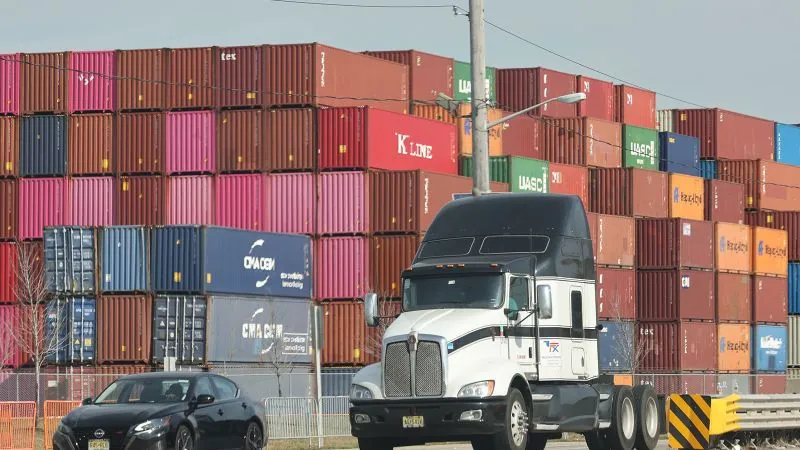
Major Port Strike Avoided: Dockworkers and Shipping Companies Reach Groundbreaking Agreement!
2025-01-09
Author: Ken Lee
A potentially devastating strike threatening America's East and Gulf Coast ports has been averted, at least temporarily, following a crucial tentative agreement between longshoremen and major shipping and port companies. On Wednesday, the United States Maritime Alliance (USMX) announced that they have reached a six-year deal with the International Longshoremen’s Association (ILA), which represents approximately 50,000 workers across 14 port authorities from Maine to Texas.
This agreement comes just days before a planned strike was set to commence on January 16, potentially crippling logistics and supply chains in strategic economic hubs. The negotiation process was marked by tense discussions but ultimately culminated in a compromise beneficial for both sides.
In a joint statement, ILA and USMX expressed their satisfaction, stating, 'This agreement protects current ILA jobs and establishes a framework for implementing technologies that will modernize East and Gulf Coast ports, making them safer and more efficient while strengthening our supply chains.' This forward-thinking agreement is being hailed as vital for American consumers and businesses alike, positioning the U.S. as an essential player in the global market.
The deal builds on previous negotiations that began in October, where the contract included a substantial wage increase—10% in the first year and a total of 62% over the entire contract term. Notably, the latest agreement addresses concerns regarding automation, a significant sticking point for the union that raised fears about potential job losses. While full automation is currently excluded from the contract, provisions for semi-automation have been established, allowing the introduction of technologies like specialized cranes that operate partially without human input. The contract assures the ILA that any job reductions will be compensated with guaranteed positions in relation to new technologies.
Despite resistance from management advocating for technological advancement to enhance productivity, the ILA voiced apprehensions regarding job security. The balance between modernizing processes and preserving jobs is a delicate one, and both parties are committed to navigating this complexity to ensure long-term sustainability in port operations.
Interestingly, this agreement has garnered political attention. President Joe Biden previously resisted calls from business groups seeking intervention during the strikes in October, emphasizing the importance of labor relations. With the upcoming transition of power, speculation arose surrounding whether President-elect Donald Trump might have taken a different stance had a new strike emerged. After discussions with ILA President Harold Daggett, Trump indicated support for the union’s position on automation, highlighting a potential shift in political dynamics regarding labor issues in the shipping industry.
This landmark agreement not only averts immediate crisis but also establishes a path forward for modernization alongside job creation in one of the nation’s vital economic sectors. As developments unfold, port workers and shipping companies alike are watching closely, recognizing that the implications of this deal extend far beyond the realm of labor relations—they resonate throughout the entire American economy.
Stay tuned for updates as this story continues to develop!


 Brasil (PT)
Brasil (PT)
 Canada (EN)
Canada (EN)
 Chile (ES)
Chile (ES)
 Česko (CS)
Česko (CS)
 대한민국 (KO)
대한민국 (KO)
 España (ES)
España (ES)
 France (FR)
France (FR)
 Hong Kong (EN)
Hong Kong (EN)
 Italia (IT)
Italia (IT)
 日本 (JA)
日本 (JA)
 Magyarország (HU)
Magyarország (HU)
 Norge (NO)
Norge (NO)
 Polska (PL)
Polska (PL)
 Schweiz (DE)
Schweiz (DE)
 Singapore (EN)
Singapore (EN)
 Sverige (SV)
Sverige (SV)
 Suomi (FI)
Suomi (FI)
 Türkiye (TR)
Türkiye (TR)
 الإمارات العربية المتحدة (AR)
الإمارات العربية المتحدة (AR)